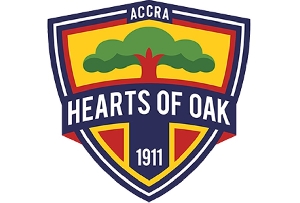Smallholder farmers in the food crop sub-sector are a significant portion of Ghana’s Agricultural system. The COVID-19 pandemic has further heightened their significance as they continue to contribute immensely to the nutritional and dietary needs of the Ghanaian population through food production. They contribute close to 80% of the food needs of the country. However, they are faced with intractable challenges in their production process, a situation that begs for Government intervention. But looking back at 2020, the question is did smallholder farmers receive the needed support required to improve on their productivity as well as their livelihood?
Key challenges of Smallholder farmers in 2020
A quick look 2021 shows there are still many challenges confronting smallholder farmers in Ghana. But key among them includes poor access to quality credit, inadequate access to mechanization services, inadequate access to a ready market, and weaker farmer groups among others.
The issue of quality credit remains a major challenge for many smallholder farmers in Ghana. It needs to be stressed the credit regime in the country does not favour smallholder farmers. For instances, farmers who seek and receive credit, complain of the high-interest rates associated with it. Owing to the risk associated and the high-interest rates, many smallholder farmers shy away from seeking support and hence not able to expand their production.
Another thorny issue for many smallholder farmers is inadequate access to mechanization services. It’s been a challenge to many as they are not able to access mechanization services at the right time that it is required. The available mechanization equipment like tractors, power tillers, combine harvesters among others are not only inadequate but sometimes unsuitable to their needs.
In addition, marketing remains the headache of many farmers. Many smallholder farmers are not able to access the market for their produce. A key dimension of marketing is the price. Many farmers in Ghana have become price takers. They know the cost of production, but they are not able to fix the prices to reflect their cost of production. This leaves them to become even poorer with the over-reliance on the middlemen.
Yet still, many smallholder farmers in the country remains largely unorganized. The presence of strong farmers groups for them would have provided some level of support too with respect to accessing most of the needed support services. In an instance where these groups exit they are not strong enough to deliver such services to their members.
Effects of the Challenges
The presence of these challenges mentioned above, continue to impact negatively on smallholder farmers and consequently their levels of production.
These have further narrowed their capacity to contribute more to the development of the Agriculture sector of the country.
The first consequence of these challenges on smallholder farmer’s face is low productivity. Many smallholder farmers are not meeting the National achievable yields in most of the crops that they produce. Many are not able to expand their production to meet the needs of consumers. For example, despite the huge number of smallholder farmers who produce staples like maize, there are already concerns about a possible shortage of it and other grains in the market.
The overall effect of the challenges they face is poverty and a low standard of living. Data on poverty distribution in Ghana points to smallholder farmers being among the category of the poorest people in Ghana. And this could be attributed to their inability to improve on their productivity.
Way forward going into 2021
Amidst the challenges farmers are still confronted with, it is important to mention that there have been some level of support by the government of Ghana to address some of these concerns of smallholder farmers. However, a lot remains to be done to bring them up to the desired levels of productivity.
Another area of commendation is the completion of the Agriculture census.
Government, through the Ghana Statistical Service, successfully completed the Ghana Agriculture Census which provides a very good starting point to ensure that the concerns of smallholder farmers are well addressed. For instance, the census captured issues of gender, age, location, farm size, type of crop, level of production among others which should aid in planning.
Therefore, moving forward into 2021, there is a need for the formation and strengthening of farmer cooperatives across the country. Such groups or cooperatives are needed to ensure that a lot of the available support mechanisms are channelled to the farmers.
Also, in light of the above, there will be the need to radically review existing programmes like the planting for food and jobs programme to address the concerns of farmers. Hence, the current programme which is hinged on five (5) pillars could be made to include others like access to credit, ploughing services (mechanization) among others. Such additions will ensure that the challenges of farmers are adequately addressed so as to help them improve their productivity.
Conclusion
In conclusion, looking at the year 2020, the current COVID-19 pandemic presents a unique opportunity for smallholder farmers in the country. With Agriculture holding the promise for the economy, smallholder farmers cannot be left behind. They hold the key to ensuring the sector drives the kind of growth the Agriculture sector is supposed to contribute. Therefore, there is a need for a strong commitment and support to smallholder farmers. Such support needs to go beyond the supply of subsidized fertilizer and seed, to include other support services such as mechanization, credit support among others. Until such a mix is attained, it does appear successive governments have been paying lip-service to smallholder farmers in Ghana and 2021 might not be different for smallholder farmers.
Emmanuel Wullo Wullingdool, Policy Advocate & Consultant in Agriculture and International Trade wullingdool@gmail.com
Opinions of Tuesday, 29 December 2020
Columnist: Emmanuel Wullingdool















